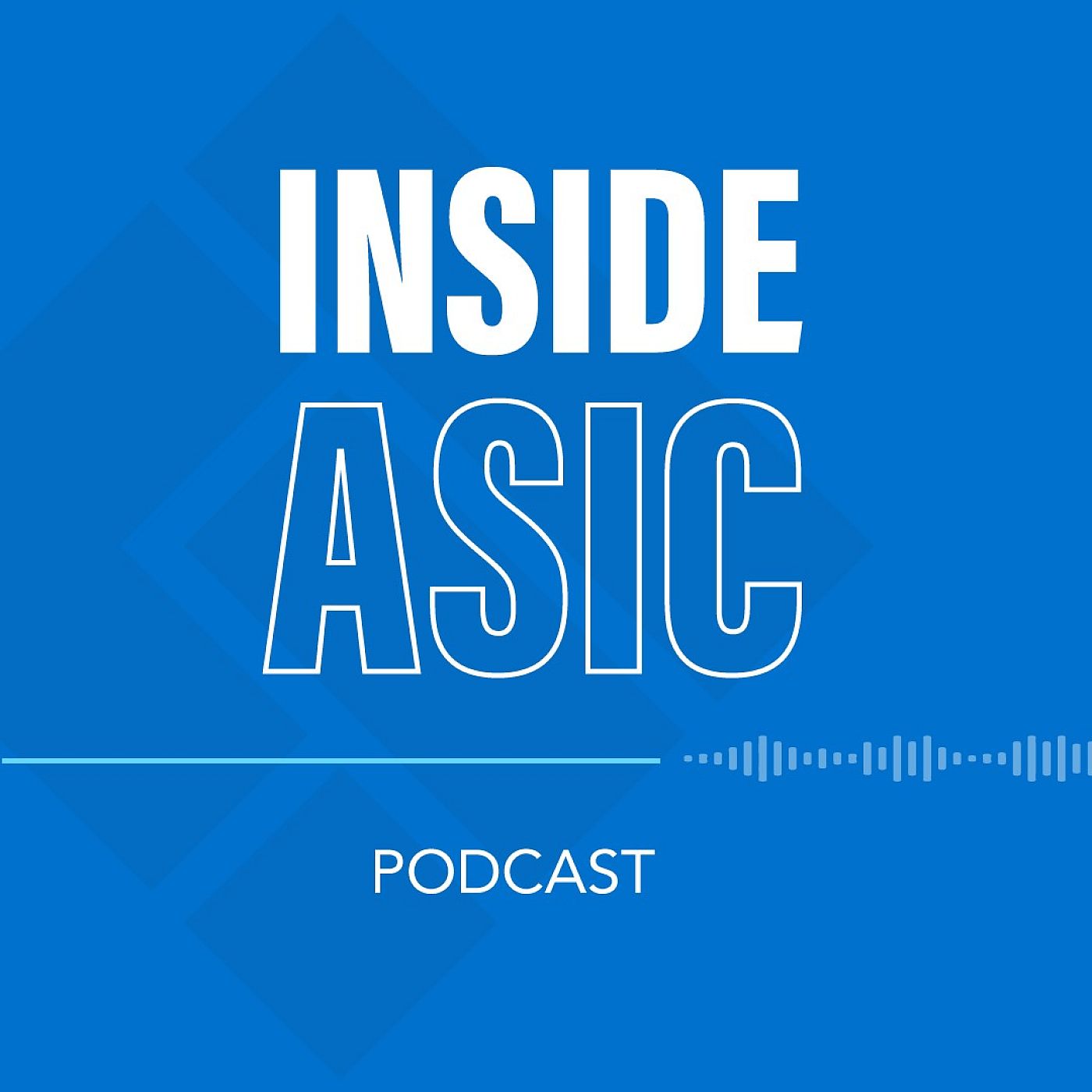
The official podcast of the Australian Securities and Investments Commission (ASIC). The Australian Securities and Investments Commission is one of the busiest law enforcement agencies in the country. In Inside ASIC we look at what it takes to keeps the financial markets and consumers safe. The podcast gives insight into the workings of ASIC and hears from the people involved. Each episode of the podcast showcases a different area of the work of our people as told by our staff, plus interviews with Commissioners and external guests. You’ll hear from key players inside ASIC on everything from protecting consumers from increasingly sophisticated scams to cracking down on greenwashing and holding super funds to account. The latest series of Inside ASIC is here: https://open.spotify.com/show/2itvIwJWHm5qhws9Z8dyiT?si=zHeqtwVdRqSHShBKZkjSZQ
Episodes
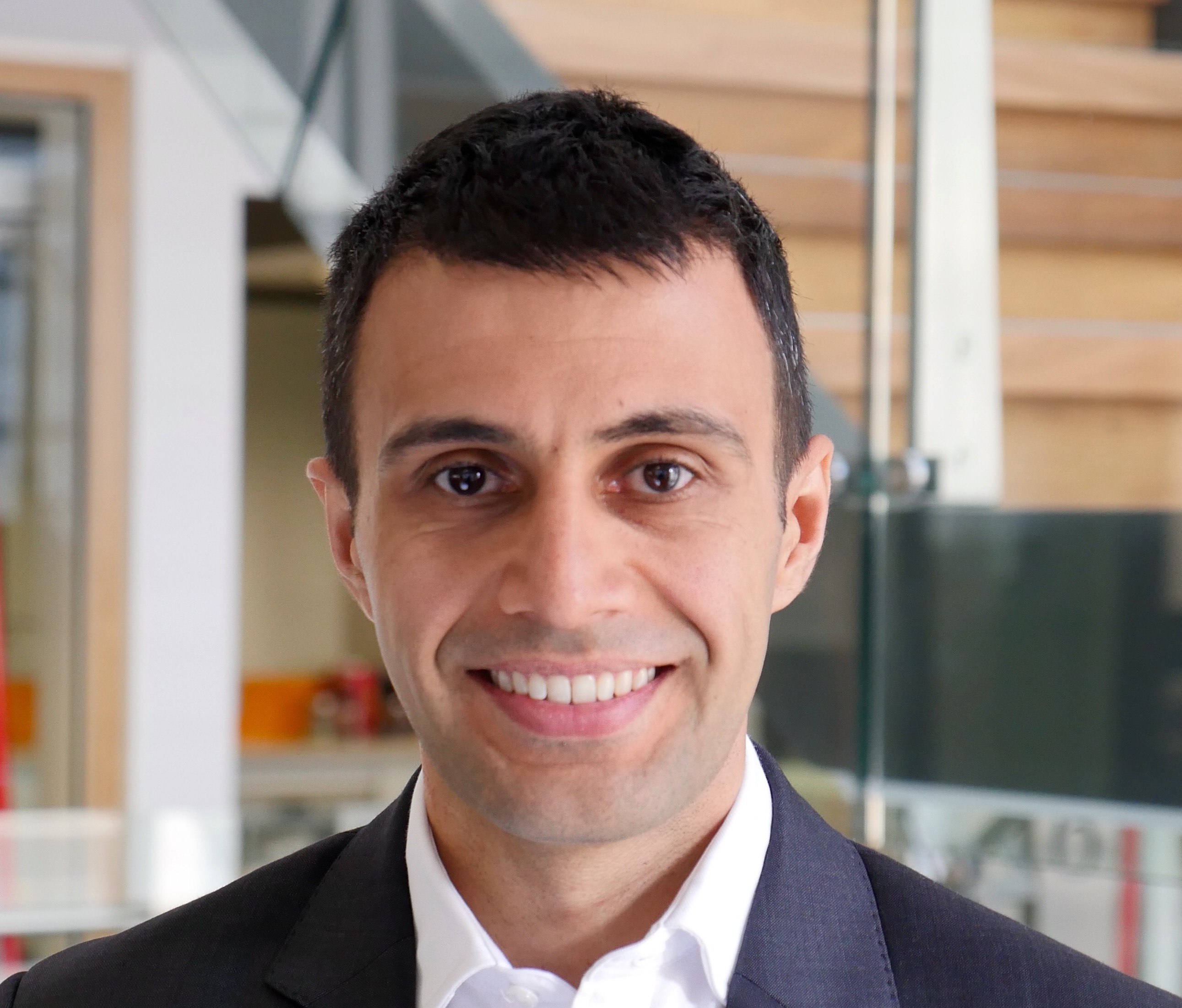
Tuesday Jul 03, 2018
Episode 41: ASIC's review of the credit card market
Tuesday Jul 03, 2018
Tuesday Jul 03, 2018
Michael Saadat, ASIC's Senior Executive Leader - Deposit takers, Credit and Insurance, joins the podcast to discuss ASIC's review into the credit card market in Australia.
Consultation Paper media release
Review into Credit Card lending media release
Transcript below:
Read the rest of this entry »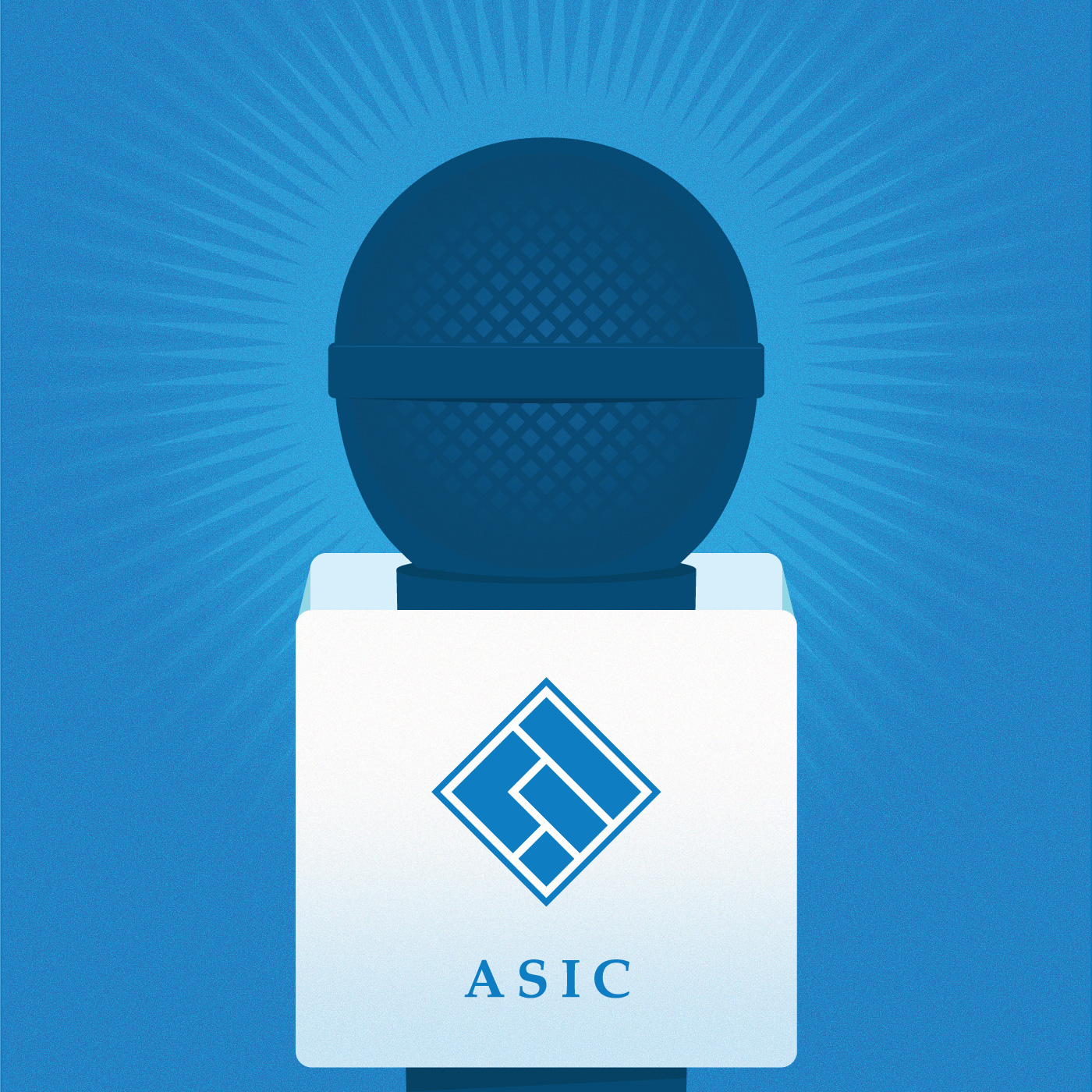
Thursday Jun 28, 2018
Episode 40: SMSF advice
Thursday Jun 28, 2018
Thursday Jun 28, 2018
ASIC Senior Executive Leader Jo Bird joins the podcast to discuss a review of self-managed super funds, and to give some advice to consumers who are thinking of setting up an SMSF.
Read the reports of this review Report 575: SMSFs: Improving the quality of advice and member experiences and Report 576: Member experiences with self-managed superannuation funds, and find out more about SMSFs on ASIC's MoneySmart.
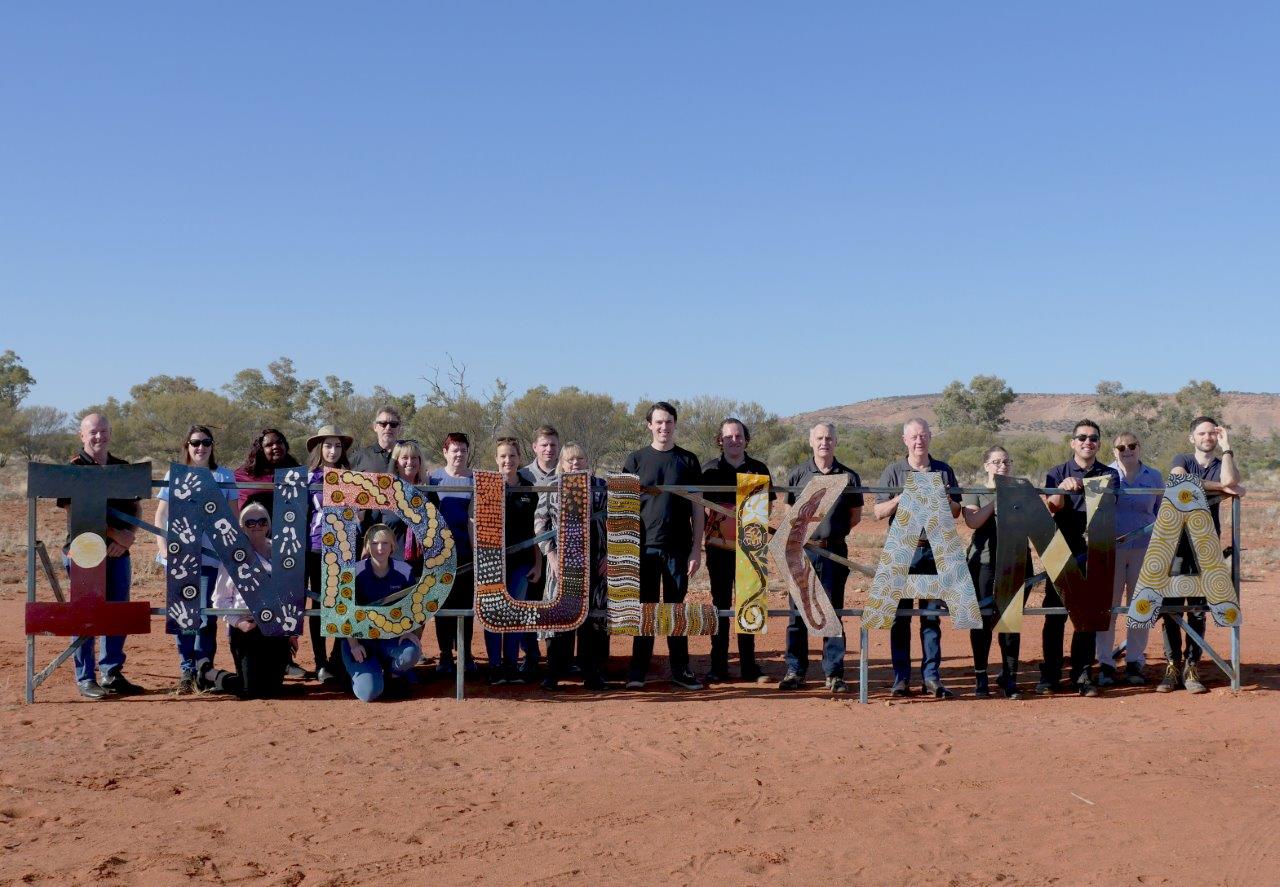
Monday Jun 25, 2018
Episode 39: Indigenous Outreach trip to the APY Lands
Monday Jun 25, 2018
Monday Jun 25, 2018
ASIC's Indigenous Outreach Officer Nathan Boyle talks with Susan Tilley from Anangu Lands Paper Tracker Radio Program about ASIC's work with indigenous consumers and the recent outreach trip to the APY Lands with super funds. Visit the Paper Tracker website to listen to the full interview.
Transcript below:
*Opening music*
Susan Tilley: Nathan, welcome to the Anangu Lands Paper Tracker radio show. Thank you for joining us today.
Nathan Boyle: No worries. Thanks very much for inviting us on.
Susan Tilley: Nathan, could you give us an overview of the role and the work of the Indigenous Outreach Program of the Australian Securities and Investments Commission?
Nathan Boyle: Yeah sure. The Indigenous Outreach Program, or IOP for short, is a national team of lawyers and analysts who specialise in working with Aboriginal and Torres Strait Islander people, in communities right across the country to really help them to resolve financial services issues that might impact on them.
The IOP focuses on three main types of work. The first is on helping Indigenous people to get a better understanding of financial products on the market, by producing information that is designed specifically for Indigenous people to really help them get a proper understanding.
The second main type of work that we do is working with stakeholders. So, people that are in the organisations that Indigenous consumers need to interact with, like superannuation companies or banks, and helping them to understand how they change the way that they provide services to Indigenous consumers to make sure that they have the same ability to access financial services as all other Australians.
And, the third thing that our team does is where Indigenous people let us know about a problem that they’re having with a financial services provider, like a bank, or credit provider, and we can work with that community to take those issues to court and to ask a judge to decide whether or not the type of behaviour that is being experienced by the Indigenous consumers is fair. And that way we’re able to help Indigenous consumers to solve big problems that they might be having in the way that they’re treated by certain companies.
Susan Tilley: Now, ASIC and your team have just been to the APY Lands to talk with Anangu about their superannuation and their entitlements. But before we chat about your visit, which we’re really keen to hear about, it would be useful if you could explain what superannuation is and who’s eligible to pay and to receive superannuation.
Nathan Boyle: So, there are a lot of quite difficult rules around exactly how superannuation works. Sometimes it can seem really hard for people to understand exactly what superannuation is, but the easiest way to think about super is that super is like a special bank account that a person’s boss has to set up and put extra money in, on top of the wage that they earn each week. That money can only be accessed by the person usually once they’re too old to work, and they retire.
Susan Tilley: So Nathan we’re really keen to hear about your recent visit to the APY Lands. Would you like to tell us which communities you went to and what was the reason behind your visit?
Nathan Boyle: I’m really excited to be able to talk about last week’s trip actually because it was a really fantastic trip and we got to meet with a whole lot of Anangu. So, last week we took a group of executives from superannuation funds that had customers in the APY Lands, as well as Government departments and senior people from the Government departments that are involved in superannuation, out to the APY Lands. We visited 5 APY Lands communities last week.
We started in Indulkana, moved to Mimilli, Fregon and Pukatja, then finished the week on Friday in Amata. We really looked to a large part of the APY Lands with this outreach.
There were a few main aims of the trip. The first and definitely most important aim was that Anangu had told us that while they had superannuation, they were finding it very very hard to get that super even when they were entitled to get it. We wanted to help people get access to their super if they had met a reason why they could get their super because it’s their money.
The second reason was that we wanted to give people from the super funds and Government departments, an ability to see firsthand, to see from Anangu, how hard it was to access those services now so they can think ‘how can we make it better in the future’. We hope that those people will remember the difficulties that they saw when they were in the APY Lands this week when they’re thinking about making policy changes to make sure that it is easy to access superannuation for Indigenous people right around the country. So we think of it, if the superannuation funds actually get to see an Aboriginal person who is having difficulties accessing their own money, that it has a much bigger impact for that person than just hearing stories from someone like myself or from ASIC about what the issues are. Taking them out to communities really lets them see it and think about how they can fix the problems.
Susan Tilley: What did you find were some of the main challenges that they were facing in terms of superannuation?
Nathan Boyle: There were a whole range of barriers that people were facing. From things as simple as language, that many people in the APY Lands are first language speakers and communicate mainly in Pitjantjatjara. Access to interpreters to help them communicate with the funds, limited telephone coverage, as well as problems with identity documents. They might have had different names and different dates of birth on two different formal identity documents.
Susan Tilley: Now we know that there aren’t many jobs in remote communities and that lots of people are living on income support benefits and unemployment money. What are your thoughts on how the lack of work and the very small jobs market in remote communities, how that affects people’s ability to earn super, and what this might mean for people when they’re older and they can’t work, or have very little or no super?
Nathan Boyle: I think it is true that there are less jobs, less ability to find paid employment in some remote communities, and look it’s not really my area of expertise to talk about why there might or might not be jobs in remote communities, but there are a lot of issues like income support payments and these kinds of programs that really do intersect with the type of work that we do. We try and be very clear if we can, about the types of issues that we can help people with and those that we can’t, because we want to make sure that we make the biggest difference we can and, as an example of that, one of the things that I think Anangu taught the financial services industry representatives last week, was how intelligent they are and how much they want to know about their superannuation. I think that the super reps that came learnt the importance of really making sure that they give Anangu or other Indigenous consumers information in a way that they can understand so that they can make an informed decision, and that’s the kind of work that we like to do with the industry and with other Government departments.
It was really great to see all of those senior people from both finance industry and Government sitting down and learning from Anangu, taking the time to listen to Anangu about what their problems are in accessing super, finding out exactly what they do know and don’t know, and we’ve had a lot of comments already that people take the things they learnt from Anangu and think ‘how can we make sure that we’re communicating better so that both Anangu and the super industry can understand each other’s requirements and get the best out of superannuation.
Susan Tilley: We’d like to talk now about book-up, which is the practice of store owners taking customers debit cards and PIN numbers that are linked to a bank account into which their income is paid, and using that as security for purchases that they buy on credit. This arrangement can give the store owners free and easy access to customers’ accounts and to their money, and a case of book-up ‘bad practice’ was taken to the Federal Court. There have been more recent developments about this particular case, so it would be great if you could give us an update about the Mintabie book-up case.
Nathan Boyle: It is important to say that although the court did find that Mr Kobelt, the man who was running the store in Mintabie that we did take to court to ask the judge about whether or not his services were fair in terms of book-up, that the court found that he was operating a credit business without a licence, but that the way that he was operating the business wasn’t necessarily ‘bad practice’ under the law as it currently exists. So, ASIC thinks that potentially the behaviour might have been enough to amount to unconscionable conduct, the legal standard that a court needs to find in order to say that something is unfair, and at the moment we have sought commission to ask the High Court of Australia to make a decision about whether or not the way Mr Kobelt ran his book-up practice was fair or not. ASIC also thinks that even if the High Court thinks that Mr Kobelt’s book-up was fair as the law is now, that we should do something to make sure that Anangu have some rules that they can understand and Indigenous people using book-up around the country can understand, to make sure that they are always treated the same way and fairly if they’re using book-up. So, we’re talking to Indigenous people at the moment to find out ‘are there some rules that we could bring in to make this work better for them’.
Susan Tilley: Nathan, drawing to a close is there anything else that you would like to share with our listeners today?
Nathan Boyle: I think just quickly, it’s important for me to say a massive thank you to Anangu and to the communities in the APY Lands that really welcomed us there and invited us into their communities last week. The event was really well attended and on behalf of our partners that we ran the trip with, MoneyMob Talkabout, First Nations Foundation, The Australian Taxation Office, AUSTRAC, The Department of Human Services, Australian Super, HESTA, Super SA, QSuper, and Prime Super, we were all really appreciative and learnt a huge deal from your engagement in the program last week. The last thing I want to say to people is a lot of the things that we’ve spoken about today and in financial services generally are very confusing. You don’t have to know everything about financial services, we say to people it’s the same as being a little bit sick. If you’ve got a problem or you’re not quite sure about something in terms of your finances you don’t need to be your own doctor, you just need to know that there are places you can go to for help. In the APY Lands, MoneyMob financial counselling service is a really great place to go with your money questions.
Susan Tilley: Well Nathan thank you so much for talking with us today, it’s been great hearing about the work that ASIC’s been doing and we wish you all the best with your ongoing work. Thank you.
*Closing music*
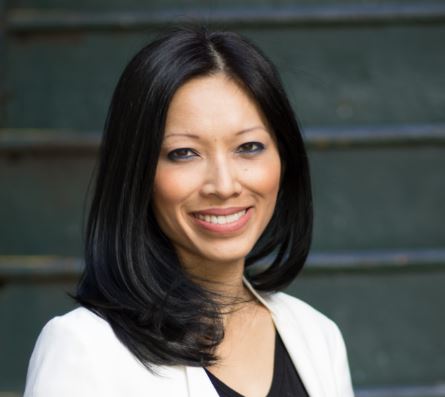
Friday May 04, 2018
Episode 38: Van Le
Friday May 04, 2018
Friday May 04, 2018
Van Le, Director of Innovation and Strategy at Xinja, was a guest at ASIC's Annual Forum in March 2018. She made time to join us on our podcast to discuss open banking.
You can read the full transcript of the interview below.
Read the rest of this entry »
Monday Apr 30, 2018
Episode 37: Scott Farrell on open banking
Monday Apr 30, 2018
Monday Apr 30, 2018
Scott Farrell, Partner at King & Wood Mallesons, joins ASIC SEL Michael Saadat on the podcast to discuss open banking.
Scott headed up the Australian government's review into open banking and was asked to recommend the most appropriate model for open banking in Australia.

Tuesday Apr 24, 2018
Episode 36: ASIC's Stretch RAP
Tuesday Apr 24, 2018
Tuesday Apr 24, 2018
On 17 April 2018, ASIC launched its Stretch Reconciliation Action Plan. On this episode, we're joined by Danille Abbott, Chair of ASIC's RAP Strategic Committee and RAP Working Group and descendant of the Wirlomen Noongar people, to talk about the goals of the stretch RAP and ASIC's commitment to reconciliation.

Wednesday Apr 18, 2018
Episode 35: Ian Yates
Wednesday Apr 18, 2018
Wednesday Apr 18, 2018
Ian Yates, Chief Executive of the Council of the Ageing Australia, joins ASIC Deputy Chair Peter Kell on the podcast to discuss preparing financially for retirement.
Visit ASIC's MoneySmart website for more information on retirement income planning.
Click through for transcript:
Read the rest of this entry »
Thursday Apr 12, 2018
Episode 34: Mark McCrindle
Thursday Apr 12, 2018
Thursday Apr 12, 2018
Social researcher Mark McCrindle joins the podcast to discuss home ownership and the changing Australian dream, which was a topic of discussion at ASIC's 2018 Annual Forum.

Wednesday Mar 28, 2018
Episode 33: Close the Gap
Wednesday Mar 28, 2018
Wednesday Mar 28, 2018
On 16 March 2018, ASIC held a Close the Gap event featuring two leading Indigenous entrepreneurs:
- Liam Ridgeway, co-founder of Ngakkan Nyaagu (NGNY), an Indigenous digital enterprise
- Jasmin Herro, founder of Outback Global, a leading Indigenous supplier of workwear
The Close the Gap campaign aims to create equality in health between Indigenous and non-Indigenous Australians. This campaign also measures progress in economic development and employment, and these aspects were the focus of ASIC's event.
Liam and Jasmin were also kind enough to speak on our podcast after the event. In the episode, you will hear from Liam and Jasmin about how and why they started their businesses and what impact they seek to have as Indigenous entrepreneurs.
Transcript
Host: Hello and welcome to the official podcast of the Australian Securities and Investments Commission. In today’s episode we will be talking to two outstanding Indigenous entrepreneurs who we’ve just heard from at our Close the Gap event here in Sydney today. My name is Justine Butler, and with me are Jasmin Herro, CEO of Outback Global, and Liam Ridgeway, founder of NGNY, an Indigenous digital enterprise. Thanks very much for your time today, let’s start with Liam. Liam, you started your IT career with Microsoft and were extremely successful there, what did it take to leave such a big enterprise and start out on your own?
Liam Ridgeway: It was quite interesting. It took a lot of, I guess a lot of guts. In fact, there was lots of late nights, lots of thinking about whether I should pursue this or not. It sort of came off the back of an idea from a conversation that I had with a colleague of mine at Microsoft to I guess pursue a business idea and leave Microsoft, and, I think it literally took me maybe nine months to actually build up the courage to go and actually explore the opportunity to start my own business. And it was very stressful, I had to also convince my partner at the time, who is now my wife, that this was the journey that I wanted to take and that my potential was going to be far higher going on this journey and starting my own business as opposed to working just in a corporate role, and I also wanted to make more of an impact, and so that was the thing that actually helped me convince myself that by having my own business I could have more of an impact in the Indigenous community, but also across Australia and potentially across the globe as well.
Host: The question, or possibility, for impact came up in the talk today and Jasmin I believe you’re very much motivated by making an impact around Indigenous culture in both Indigenous and non-Indigenous communities, perhaps you’d like to tell us a bit more about that.
Jasmin Herro: Thanks Justine. Yes, I think there’s an unwritten law that Indigenous businesses must give back to community, and must show a social impact, and if not, now. And I think one of the reasons why I took time out to think about the social impact that I wanted to leave, which was not just about writing a cheque for money, but leaving a legacy for others that would outlive me and even my project. And one of the things as a parent, my children always struggled with was ‘how do I explain who I am, and where I’m from?’. And I think the other side of that was how do the teachers try to include Indigenous culture into the classroom? So as a parent myself, I thought, I was getting a little tired of teachers asking me, ‘so, um, what do you think we should do for NAIDOC Week this year?’. And I think that started me thinking about ‘how could I make it easy for my children to explain about their culture, and how could I make it easy for the teachers and the other students to understand how interesting it was?’. And so that’s why I embarked upon the Teter Mek project and indeed writing the books, and creating the workbooks and teachers’ resources to go with it.
Host: That kind of leads me back to this kind of broad question that we have about, ‘how does being an Indigenous person influence your business?’ Liam you spoke about that today, perhaps you could elaborate.
Liam Ridgeway: So, being an Indigenous person and being in business, for me, and I can also talk for John my business partner as well, it is a core part of what we do, why we exist, and how we do what we do. So, being Indigenous and having a business, as Jasmin talked about, we want to be able to make an impact; we call it a social impact; but for us it’s about an impact of sustainability, of enhancing and improving the lives of our community and our people. You know we talk about this whole idea around the ‘gap’, and we want to participate and look at the way that technology plays a role in closing the gap, but I guess the other side to it as well is that there’s not only a gap in relation to Indigenous Australia and connecting with western education systems, but it’s also non-Indigenous Australia and how it is connecting with Indigenous perspectives and culture as well, and we want to be a part of that journey too and look at the way that technology plays a role in capturing our culture and being able to share that with the rest of Australia, and with the rest of the world. So being Indigenous, and owning our own business, absolutely for us go hand-in-hand, and drives us every day, and this is why we’ve coined the term ‘Indigenous digital economy’, because we want to achieve success in our business, but it’s the bigger picture; the success for our people the success for our community, and the growth of our community.
Host: So, Jasmin, you’ve managed to start a workwear uniform supply company that now I believe has a partnership in the United States amongst other things, so it’s a global enterprise, what are some of the key challenges you encountered as you went on that journey?
Jasmin Herro: Some of the key challenges would have been finance and capital; having a product-related business is never easy, and funding yourself, boot-strapping only goes so far. So, I think building relationships with your financiers are also very important, but also having a clear discussion, an open, two-way discussion with our customers also helps make our delivery, and our service, easier. I think it’s all about building relationships. I think as far as Aboriginal people and Torres Strait Islander people are concerned, when you hear us introduce ourselves we normally talk about where our mob is from or who we belong to, and what I’ve found is that once you actually start to build these relationships internally with some of the big organisations that we deal with, that’s where the respect and the understanding of what we’re trying to achieve comes across.
Host: So, I think our final questions for both of you is ‘what’s the one piece of advice you would give a young Indigenous person contemplating getting into business?’ I might throw to you Jasmin for your tip.
Jasmin Herro: Yeah, I think I’ll stick with what I said earlier today, and one is that I can’t give one piece of advice because I’m a mother, and two, be really clear about what you’re doing and what you’re trying to achieve, and if you can articulate that into a business plan or idea, that’s when you can actually start to think about moving it into a real live business. And also, drink lots of good coffee.
Host: Thank you, we all enjoyed that tip. Liam?
Liam Ridgeway: Absolutely. So, I’d say believe in what it is that you’re doing, so absolutely don’t let anyone tell you that you’re crazy. If you believe in something, absolutely pursue it and chase it. And one thing that I would also encourage as well, is this idea around being lean. So, there’s this concept called ‘lean methodology’, so be lean. So, don’t necessarily go in and spend lots of money on this particular idea that you have. Find a structured way to get your idea out there, talk to people, get feedback, make sure that the idea that you have, or the business that you want to pursue, that people are actually interested in what it is that you want to do, and why they’re interested in it. So, if they for example, they get paid – and are they actually going to spend their money with you. Find out how, really dig down and find out would they actually spend their money with you, because people in your network are going to go ‘I love that idea, it’s great’, and that’s awesome, but it’s about ‘are they going to spend that money with you’. And so that is through using this lean methodology of how to be able to understand what people’s perspective are, and if the idea that you have is going to work.
Host: Thank you so much to both of you for sharing your thoughts today, and I certainly feel like we’ve got more of an insight into closing the gap with economic empowerment so thank you both.
Jasmin Herro: Thank you.
Liam Ridgeway: Thank you.
Host: We’ll be back shortly with another episode of the ASIC Podcast.
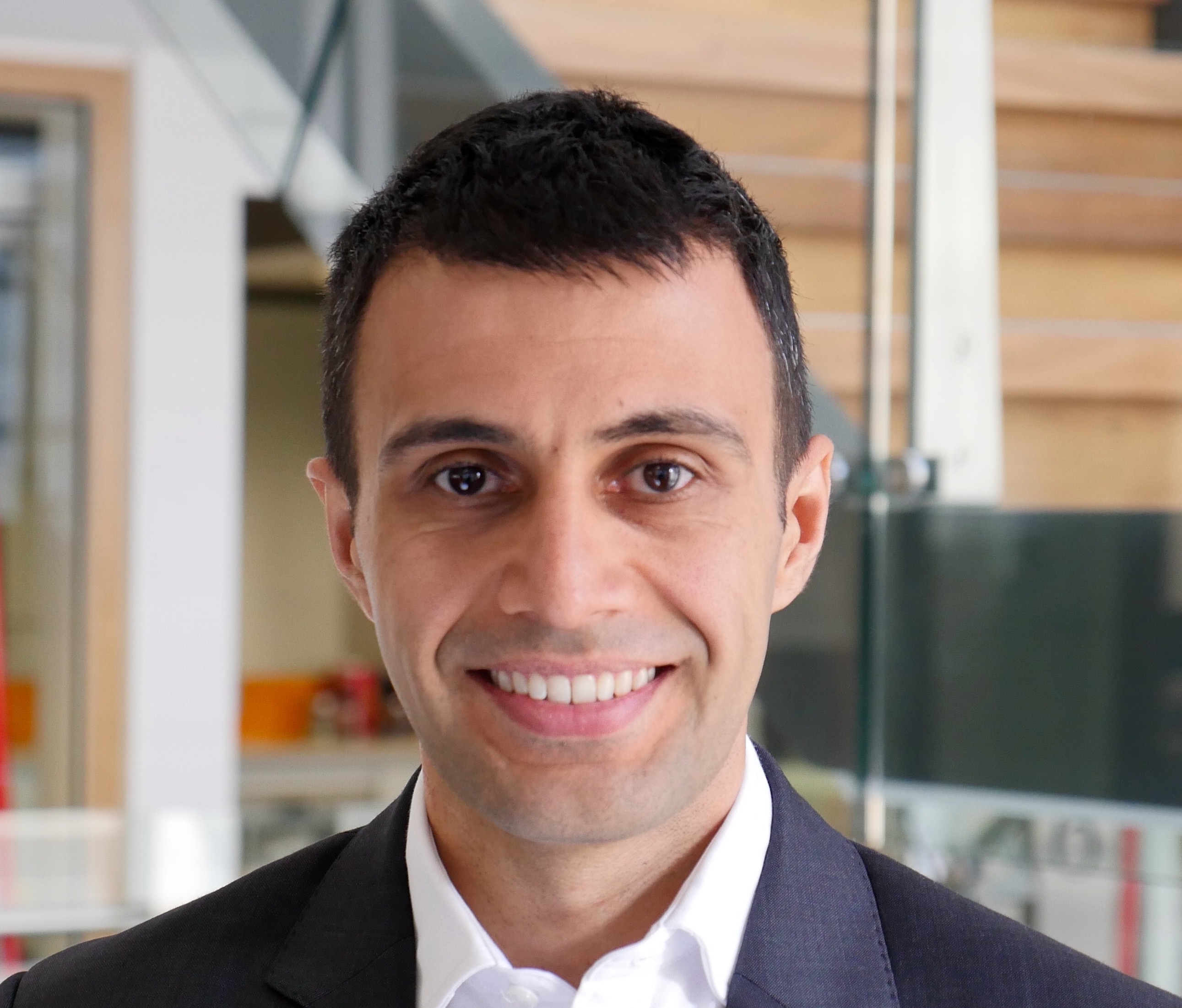
Friday Mar 16, 2018
Episode 32: Add-on insurance
Friday Mar 16, 2018
Friday Mar 16, 2018
ASIC Senior Executive Leader Michael Saadat joins the podcast to discuss add-on insurance, and ASIC's work to shine a light on poor practice, remediation outcomes, and efforts to protect consumers in the future.
Click through for the transcript:
Read the rest of this entry »